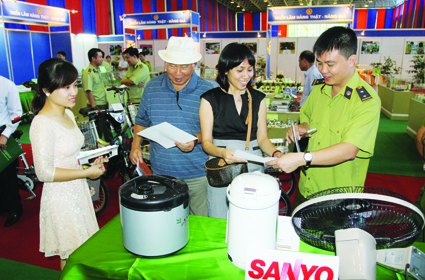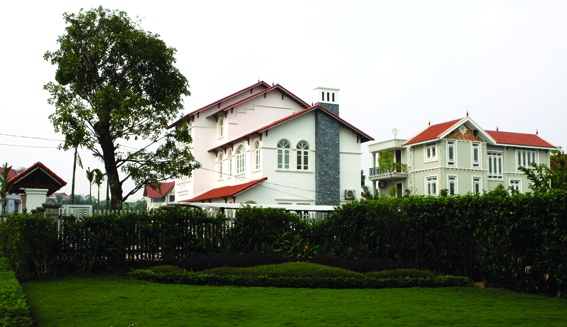The Ministry of Justice held last month a conference to review six years’ implementation of the 2007 Law on Mutual Judicial Assistance, the legal framework for handling judicial mandate requests between Vietnam and other countries. Deputy Minister of Justice Nguyen Khanh Ngoc talked with Phap Luat Viet Nam (Vietnam Law) newspaper about existing problems in this work and their solutions.
After six years of implementing the Law on Mutual Judicial Assistance, many positive changes have been seen in this field. However, the rate of judicial mandate orders left unresponded remains relatively high. In the civil field, for example, only half of judicial mandate requests were responded. What are the reasons for this situation?
This is a matter of concern to the Ministry of Justice and other ministries and central agencies. The main reason behind the situation is institutional limitations. The linkage between the Law on Mutual Judicial Assistance and procedure laws is not good. The current civil procedure law does not contain separate provisions on cases involving foreign elements and cases requiring judicial assistance. At present, all legal proceedings are settled within the same time limits, regardless of whether foreign elements are involved or not. This creates great time pressure. Just to mention the service of documents, the process of serving documents on Vietnamese prescribed in the Civil Procedures Code also applies to foreigners. However, in a civil case, documents may be required to be served up to 10 times. The complex process needs to be shortened while still ensuring the rights of involved parties.
 |
| Procurator General Nguyen Hoa Binh and Australian Minister for Justice Michael Keenan sign the Agreement on Mutual Criminal Legal Assistance between Vietnam and Australia__Photo: Do Van/VNA |
In addition, the number of judicial mandate requests has incrementally increased as a result of international integration. Before the promulgation of the Law on Mutual Judicial Assistance in 2007, there were just hundreds of judicial mandate requests every year. This figure has mounted to 4,000 and will surely continue to increase. In the meantime, proper investment has not yet been made to improve the quality of human resources and prepare the best conditions for judicial assistance work. For example, we all know that mutual judicial assistance agreements are indispensable if we want to obtain good results in mutual judicial assistance activities. Vietnam now has concluded 17 mutual judicial assistance agreements with other countries, most of them are former socialist countries, but the number of judicial mandate requests sent to these countries is not high. Meanwhile, no agreement has been signed with countries where the overseas Vietnamese communities are much larger such as the US, Canada, Japan and the Republic of Korea. By tradition, we wish to negotiate and conclude bilateral agreements with these countries but they do not want to do so. Instead, they all participate in multilateral mechanisms such as the Hague Convention on the Service Abroad of Judicial and Extrajudicial Documents in Civil or Commercial Matters. Therefore, we have no other choice but to join multilateral legal instruments in order to have relations with many countries in this field. The Ministry of Justice is doing its best to complete all procedures to join the Hague Service Convention by the end of 2015. It is reported that the time required for the service of a document under the Hague Service Convention is just two months. Thanks to the contact network established among central bodies of signatory states, the service of documents can be carried out quickly and effectively.
In sum, after six years of implementing the Law on Mutual Judicial Assistance, the Government has been fully aware of the existing problems related to the institutional framework, manpower and information technology and is working hard to solve these problems. Particularly, the Ministry of Justice is paying special attention to streamlining administrative procedures so as to save time and money for citizens.
In fact, a case may be “suspended” indefinitely just because competent agencies receive no replies to their judicial mandate requests or the received replies are not satisfactory. So, what are solutions to this problem?
It is true that improving the institutional framework is a time-consuming process, but in the immediate future, the Ministry of Justice will perform several jobs. The first is to set up hotlines between Vietnam and competent authorities of countries with which Vietnam has signed bilateral judicial assistance agreements so as to create conditions for Vietnamese and foreign competent authorities to settle any problems as soon as they arise. The second is to create a mechanism that enables local courts to send judicial mandate requests directly or via overseas Vietnamese representations, thus speeding up and simplifying the process for sending judicial mandate requests. At the same time, relevant agencies should coordinate with one another more closely to avoid the situation that courts have sent judicial mandate requests but do not know about the feedback, thus placing them under great pressure from involved parties. The third is to clarify the process and procedures related to the payment of mandate charges. Although the Law on Mutual Judicial Assistance stipulates that parties whose requests give rise to judicial mandate will bear judicial mandate charges, “technical” matters such as where and when to pay charges remain unclear.-








